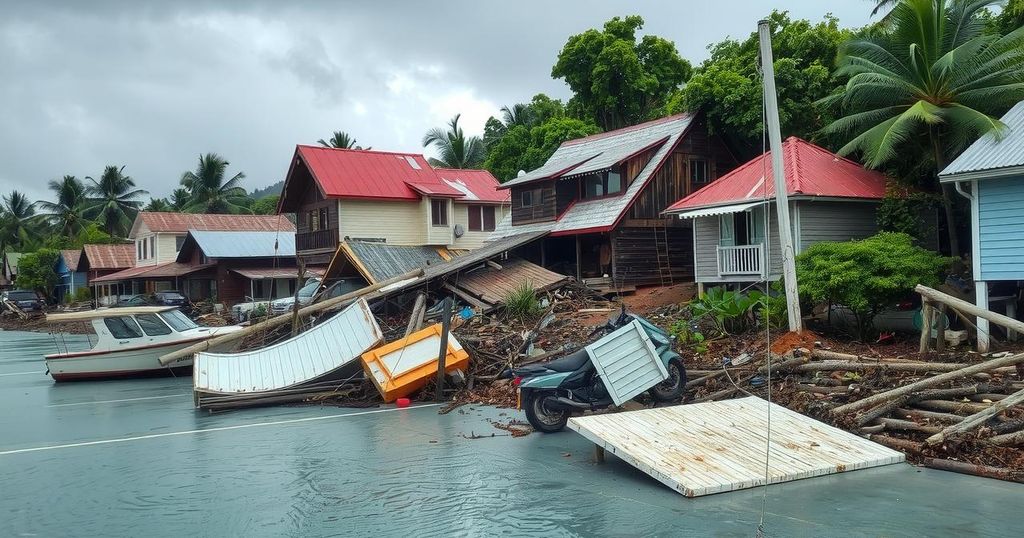Cyclone Chido Devastates Mayotte: At Least 11 Confirmed Dead and Extensive Damage Reported

Cyclone Chido has left at least eleven dead in Mayotte, causing extensive damage and injuries, with fears that the death toll may rise. The cyclone, carrying winds over 220 kph, has also impacted northern Mozambique, threatening millions. Emergency measures are underway in both regions amid concerns of further losses and humanitarian needs.
In the aftermath of Cyclone Chido, which recently struck the French territory of Mayotte in the Indian Ocean, at least eleven fatalities have been confirmed, as reported by France’s Interior Ministry. Although emergency responders continue to assess the full extent of the cyclone’s impact, fears persist that the death toll may rise as initial assessments indicate numerous injuries, with the local hospital treating nine individuals in critical condition among 246 injured. Cyclone Chido made history as the most severe cyclone to impact Mayotte in the last ninety years, causing widespread devastation with wind speeds exceeding 220 kph (136 mph).
The cyclone wreaked havoc across Mayotte, damaging core infrastructure including the primary hospital and airport, as reported by Prime Minister François Bayrou. The French government has mobilized over 1,600 police forces and additional rescue teams from France and nearby territories to assist the local population and prevent looting amidst ongoing recovery efforts. Notably, Mayotte, which has a population of approximately 300,000, is considered France’s poorest island, with parts of its communities significantly affected by the cyclone’s ferocity, resulting in flattened neighborhoods, uprooted trees, and sunken boats.
Mayotte’s situation is urgent, further complicated as Cyclone Chido advances toward mainland Africa, making landfall in northern Mozambique. Emergency agencies are bracing for potential additional loss of life and significant damage in regions home to millions. UNICEF has reported substantial destruction to housing, schools, and healthcare facilities, urging for immediate assistance. The cyclone season, typically spanning from December to March, has seen increased severity in recent years due to climate change,
underscoring the humanitarian crises faced by poorer nations in the region fueled by such severe weather incidents.
Cyclone Chido’s catastrophic events have spotlighted the vulnerability of Mayotte, which is part of France and the European Union’s poorest territories. Natural disasters such as cyclones pose significant threats to low-income nations that contribute minimally to climate change yet suffer the most from its effects. The current cyclone season has already seen severe incidents in the past, prompting calls for international support for disaster relief and climate adaptation efforts in affected regions.
The situation in Mayotte exemplifies the devastating impact of Cyclone Chido, with at least eleven reported deaths and many injuries as recovery efforts continue. The destruction of essential public infrastructure highlights the dire need for immediate aid, while the impending threat to Mozambique underscores the cyclone’s regional implications. Moreover, the increasing frequency and intensity of such cyclones highlight the urgent necessity for a global response to address the ramifications of climate change on vulnerable populations.
Original Source: www.seattletimes.com








